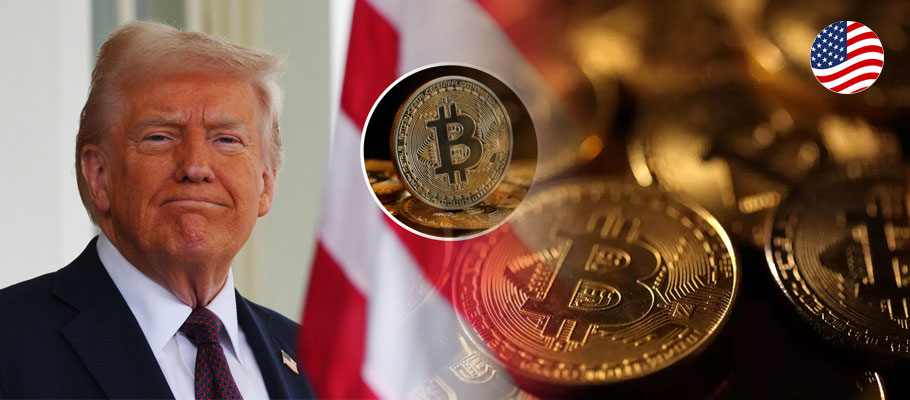
Published: March 26th, 2025
When US President Donald Trump took to his Truth social media platform on March 2nd and declared he would move forward with plans to set up a US crypto reserve, traders reacted with skepticism. Prices of the four coins he mentioned rose slightly, but only briefly.
When that mild uptick in demand died down, markets were left with more questions than answers.
Creating a national strategic currency reserve isn't something that can be declared and executed in a day. The process is complex, lengthy, and expensive. Once the enabling legislation passes, actualizing it requires multiple approvals and oversight from numerous state bodies. A management infrastructure has to be created, and regulatory frameworks established.
And that's before the technical demands of cryptocurrencies have to be grappled with.
Regardless of potential barriers, the freshly minted Trump administration seems determined to make it happen. Here's what we know so far:
White House crypto czar David Sacks said in an X post that the reserves would be funded without taxpayer money. Cash for the reserve will come from asset forfeiture related to criminal prosecutions and civil lawsuits.
Sacks added that the crypto holdings will be held in the reserve long-term and treated as a store of value, with no plans to trade or sell them.
The Pound to Euro exchange rate rose above 1.21 on Tuesday, 12th November, the highest level reached since March of 2022.
The gains came on the heels of a Euro selloff sparked by investor worries about the collapse of Germany's coalition government and concerns that the Eurozone will be exposed to policy risks arising from Donald Trump's election win.
An analyst note from MUFG's FX strategy unit said that ‘America is Europe's number one trading partner and Trump 2.0 will likely bring higher tariffs on European imports into the US’
GBP/EUR leapt to a new multi-month high of 1.2104 on Tuesday, while EUR/USD started the new week by dipping 0.54 per cent, nearing 1.0648, its lowest level since April 2024.
At time of writing GBP/EUR had pulled back slightly from its Tuesday high, suggesting that some technical resistance might be clustered near the 1.21 level, which MUFG says could be an argument for near-term consolidative trade.
The main price dynamic in the GBP/EUR pair look to be EUR weakness, which the bank's analysts say will be vulnerable to the ‘Trump trade’ for the foreseeable future.
Julia Jessop, an economist with IEA, told Bloomberg that ‘Eurozone countries are arguably amongst the most vulnerable to new US tariffs and the reshoring of manufacturing and procurement.’
EUR came under new pressure on Tuesday thanks to the appointment of Marco Rubio as Secretary of State, a politician with a track record of statements harshly criticizing Chinese trade policy.
In June 2024 a surge in EU-skeptic political wins and the calling of a snap election in France put the Euro under broad pressure.
Right-wing parties had just done particularly well in the European Parliamentary elections, especially in Italy and France, where anti-immigration parties including Brothers of Italy (FdI) and National Rally (RN) scored notable wins. French President Emmanuel Macron surprised pundits by calling snap elections for the Assemblée Nationale on the result, adding more political uncertainty to the Eurozone.
An analyst note from Milan-based UniCredit said the Euro had been ‘forced into retreat’ after the election result. This has happened before in the aftermath of European Parliament elections, however this time the cause is a rise in ‘Euro sceptic and anti-European parties, which have made gains in the major EU economies. If those are reflected in the upcoming elections for the French National Assembly, it could complicate policymaking.’
Sterling found support amid the continental turmoil, rising against all G10 peers except the US Dollar.
The Pound to Euro rate saw a lift to 1.1823 in the week following the elections, extending a rally that began with a robust US jobs print that reduced the odds of interest rate cuts by the US Federal Reserve. That in turn reduced the likelihood of UK rate cuts, since traders were betting the Bank of England would fall in line with the Fed in putting off the beginning of another rate-cutting cycle.
It was a different story for the pair in December of 2023 when analysts were predicting a slowing UK economy would prompt a Spring rate cut by the Bank of England.
A report by Deutsche Bank's Forex Strategy Unit suggested Sterling could sink against the Euro to levels last seen during the mini crisis set off by former Prime Minister Liz Truss' and her disastrous budget of September 2022.